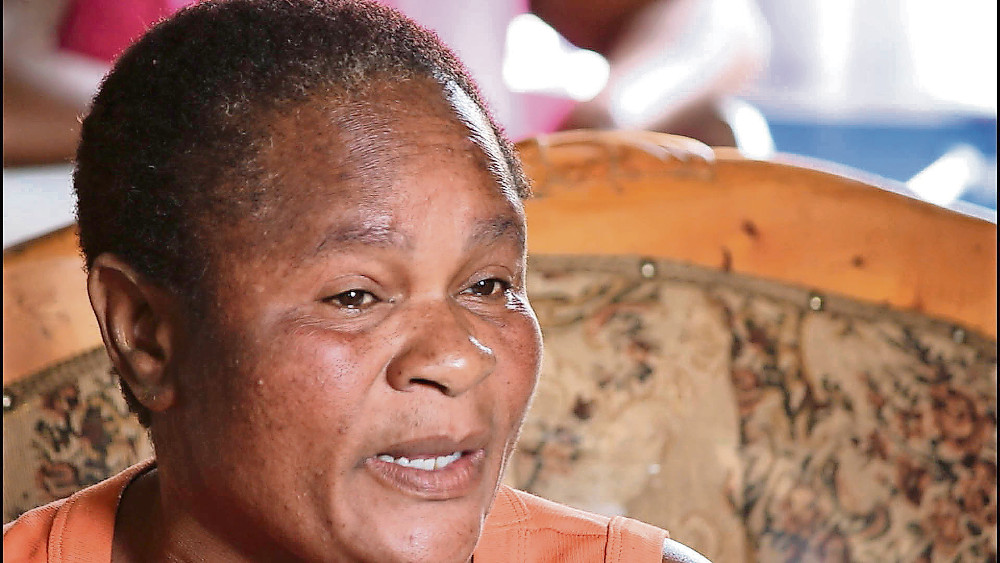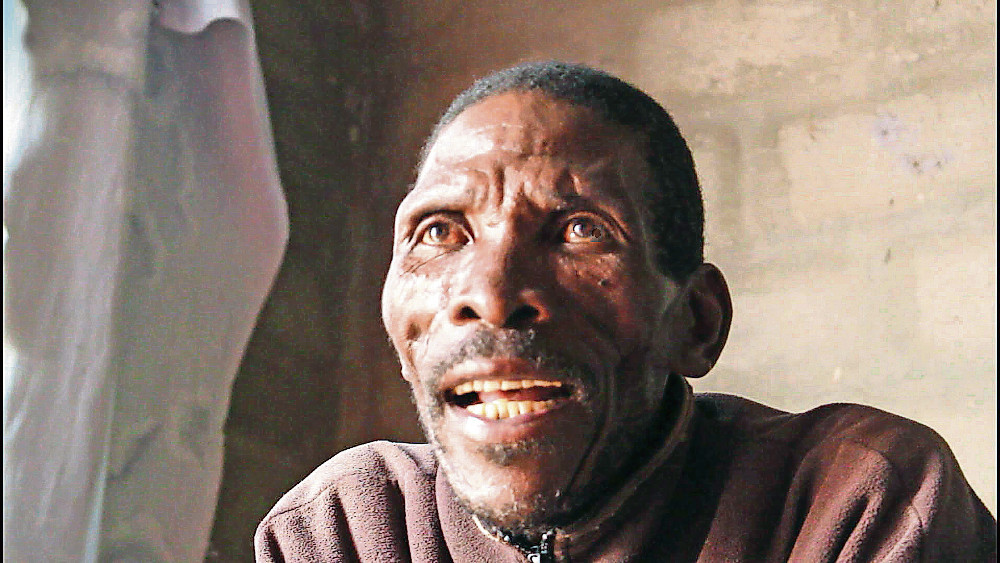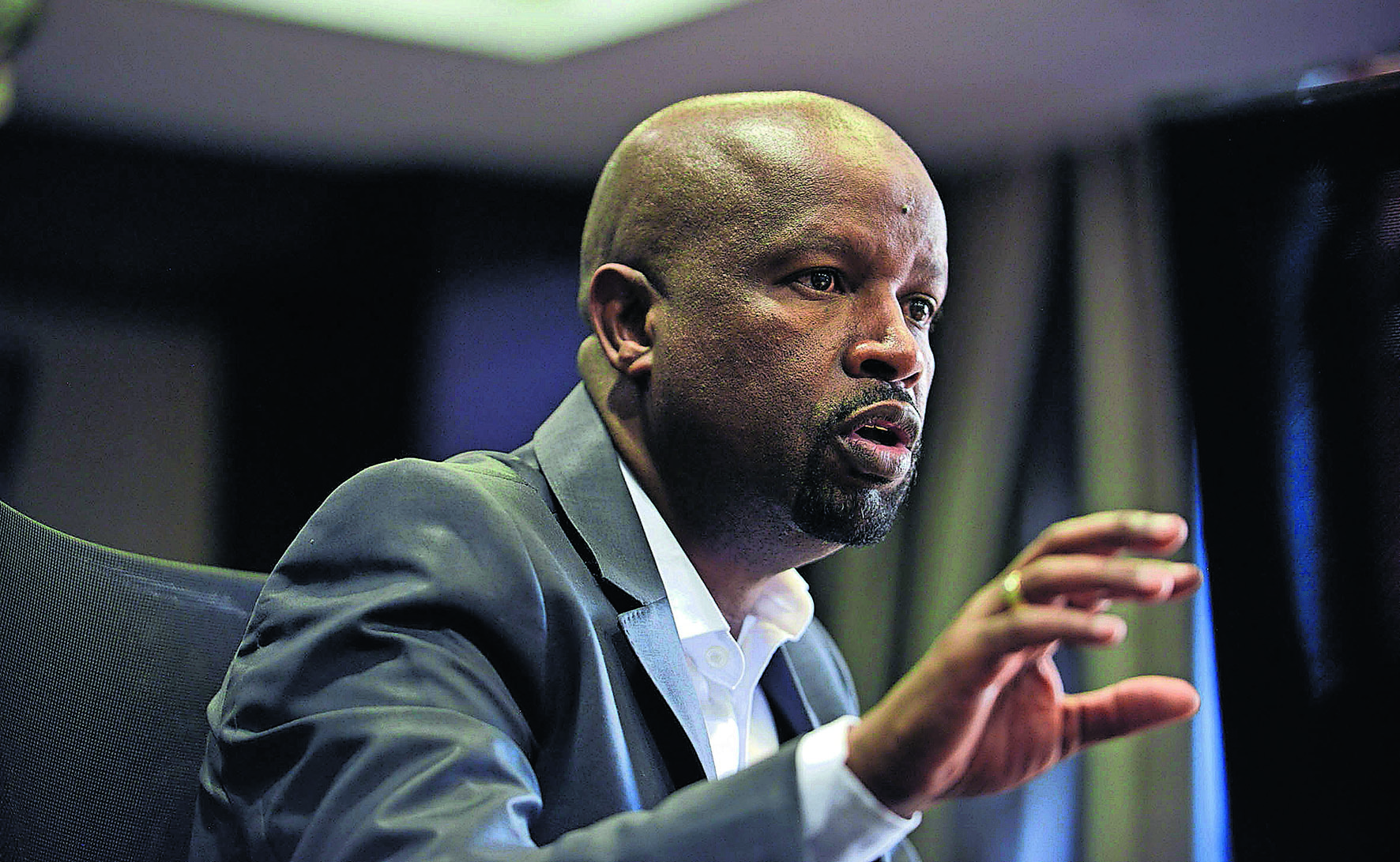Help: Community health carers protest after they lost their jobs
Virginia is a small gold-mining town in the Free State. This was once a lively place, but only a few of the mines are still operational. Now the streets are quiet, and the first petrol station heading into the township closed years ago.
Many of the residents describe it as a ghost town.
There is another problem in this town, but it’s not obvious if you are simply passing through. About 3 800 community health workers, whose monthly stipend was just over R1 000, lost their jobs when Free State health MEC Benny Malakoane sent out a four-sentence circular in April last year.
In doing so, people here believe he severed the only dignified and, for many, lifesaving connection to the public healthcare system for thousands of poor people. These are people who were reliant on the community health workers to bring them their medicine, bathe them and make sure they had a meal.
Tears come to Diekesteng Malunga’s eyes when she talks about the people who have died since she was dismissed from her job. Diekesteng, known to the residents as Mma Mokoena, lives in Meloding Township, Zone 14. It is only 10 minutes away from Virginia, but the dusty shack-lined streets make it seem a world away.
Mma Mokoena started giving of her time to the sick and needy long before she became known as a community health worker, which she was for 15 years.
“When we started this thing, we noticed that there were a lot of people suffering in our community, because they were sick and had nobody to help them,” she says.
Helping for decades
During the early 1990s there was poor understanding of HIV, and people who were infected with the virus were treated as outcasts and had no support system. “These people were sick and their families wanted nothing to do with them,” she says.
In light of this, Mma Mokoena and a group of women banded together and started going door to door to see if there were any sick people who needed assistance. That was in 2000 and Mma Mokeona has not missed a single day since.
Sabelo Motaung* was in his final school year when his mother, Nthabiseng, had a stroke. His father had died when he was younger and it was left to him to take care of his mother and his older brother, who is mentally ill. Initially, neighbours were willing to help Sabelo by taking care of his mother while he was at school.
But as her health deteriorated and the situation got worse, people stopped coming to help.
Sabelo struggled to balance his studies with caring for his mother. Overwhelmed, he went to the local clinic to ask for assistance. The clinics do not allow anyone other than community health workers to collect medicine on behalf of patients.
“I told them my mother was sick and that I needed help, but they told me that they couldn’t do anything unless she came to the clinic herself,” he says.
 Giver: Dieketseng Mokoena, aka Mma Mokoena, cares for Meloding’s sick.
Giver: Dieketseng Mokoena, aka Mma Mokoena, cares for Meloding’s sick.
When the community health workers were dismissed, many people stopped taking their medication because they were unable to get to the clinic. Those who do try often return home empty-handed, having not made it to the front of the queue by the end of the day.
After being turned away from the clinic, Sabelo went home and did what he could for his mother. His neighbours then insisted that he called Mma Mokoena.
When she arrived at the house, she found Nthabiseng lying in a cockroach-infested bed, with bottles of medicine on her bedside table. Nthabiseng had soiled herself and someone had removed her underwear and wrapped her lower body in plastic in an attempt to prevent her from soiling her sheets even further.
“The first thing I did was to undress her so that I could wash her, and as I started to wash her I found maggots coming out of her lower body,” says Mma Mokoena.
Nthabiseng was taken to the hospital, but they sent her home, saying there was nothing more they could do for her. She died a few days later.
“It hurts me that people have to die, when we are here to help people,” says Mma Mokoena. “Why must people die?”
Although his mother did not live, Sabelo says her last days were a relief to him. “When Mma Mokoena came, she did everything for my mother. She treated her like a baby even though she was older than her.”
He believes Mma Mokeona may have been able to save his mother’s life, if she had got to her sooner. “I just wish that whoever employed her can give her her job back because she is doing such important work. For those of us who have no one, she is everything,” he says.
Mma Mokoena still attends to five of her most critically ill patients every day – without payment. One is Mpho Dihlopo (51), who has been ill since 2001. He was diagnosed with heart disease and HIV infection. When his family heard he had HIV, they disowned him and left him to live on his own in a windowless two-room house.
 Mpho Dihlopo is one of the lucky few who still gets support from one of these women, despite her being jobless.
Mpho Dihlopo is one of the lucky few who still gets support from one of these women, despite her being jobless.
Sick, alone and dying, Mpho got out of bed and crawled along the streets, holding on to fences for support, in a desperate attempt to get help. That is how he arrived at Mma Mokoena’s house.
“She let me in and I just said, ‘Mma Mokoena, I am suffering and I am hungry’,” he says.
Mma Mokoena did not ask him any questions. She went straight to the kitchen and began to cook for him. At the time, Mpho was very weak and had no appetite. “She started feeding me soft porridge to drink, and she would make me eat so that I could get a little stronger,” he says.
For the 14 years since that day, Mma Mokoena arrives at Mpho’s house every morning to check on him. For Mpho, these morning visits are more than just a check-in; they are an opportunity for human contact. “It helps me so much when I just sit and chat to her. When I have someone to talk to, even for a few minutes each day, my heart feels much lighter,” he says.
On days when Mpho feels a little stronger, he is able to walk to Mma Mokoena’s house for his evening meal. He attributes what little strength he has to her care. “If it wasn’t for her, I wouldn’t be here.”
* Not his real name.
This article by Nomatter Ndebele first appeared in the October edition of the NSP Review, a joint publication of the HIV advocacy group Treatment Action Campaign and Section27. The NSP Review is aimed at providing critical analysis of the health department’s national strategic plan
Dismissed workers test the law
In April last year, Free State health MEC Benny Malakoane issued a four-sentence circular that, in effect, fired 3 800 community health workers.
They were the frontline of primary healthcare, capable of bringing services to those who can’t reach health facilities – a cadre of workers upon whom the Free State’s poorest and most vulnerable depended.
A group of these community health workers organised a protest in response to their sudden and unexplained dismissal, the MEC’s subsequent refusal to meet them and the general deterioration of the health system under the MEC’s watch. On the wintery evening of July 9, about 130 women gathered at Bophelo House, the headquarters of the Free State health department.
They intended to hold a vigil through the night until Malakoane arrived at work the following morning, at which point they would, once again, request a meeting with him. But they were arrested in the early hours of July 10 by the public order police, the unit that deals with crowd management, for an “illegal gathering”.
Most of these community health workers – many of them elderly, all of them unemployed – spent several days in jail.
Over the intervening year, the Bophelo House 94, as they became known, were called to court on seven occasions before the trial began. Each time the women travelled to Bloemfontein from all corners of the province, often hundreds of kilometres, leaving family responsibilities behind. They slept on church floors or on benches in community halls.
In court they suffered conditions that one magistrate, after one of the health workers fainted in a hot and crowded courtroom, called “inhumane and undignified”. Eventually, the court moved the proceedings from the magistrate’s court to the high court – a room capable of accommodating all the accused.
The trial finally got under way on July 6 this year. The Bophelo House 94 are charged with violating the Regulation of Gatherings Act, a 1993 law passed in the lead-up to the 1994 elections marking the fall of apartheid.
Today, the law remains the primary piece of legislation with which the right to assembly and protest, as provided in Section 17 of the Constitution, is managed. The law requires anyone who wants to hold a gathering, defined as a group of more than 15 people, to give notice to the police of their intent to do so.
This requirement enables people to work with the police to ensure that demonstrators are protected and that people can exercise their rights safely.
 Sentences: Free State health MEC Benny Malakoane used a circular to tell 3 800 community carers they’d lost their jobs.
Sentences: Free State health MEC Benny Malakoane used a circular to tell 3 800 community carers they’d lost their jobs.
For context, one must understand what kind of conduct the law does and doesn’t criminalise: it is a crime to convene a gathering and fail to give notice to the police of such a gathering; it is not a crime to attend a gathering for which no notice has been given.
In some extreme circumstances police can prohibit a gathering from taking place. Gatherings can, for the most part, only be prohibited if the police receive “credible information under oath” of a threat that the gathering will result in serious disruption to traffic, injury or “extensive damage to property” that the police believe they will be unable to manage.
In contrast to an “unnotified gathering”, it is a crime to attend (or convene) a prohibited gathering. But the understanding of this law by the police in the Free State seems to be that if there is a gathering of 15 or more people and the municipality has not been informed of and provided “authorisation” for that gathering, everyone at the gathering is guilty of a crime and should be arrested and charged with a crime carrying a sentence of up to one year’s imprisonment.
This amounts to a requirement, in essence, that people can only exercise their rights when given express permission to do so. On October 1 this year, magistrate Z Thafheni convicted the Bophelo House 94 of attending a prohibited gathering.
She found that failure to provide notice to police of a gathering renders the gathering “automatically prohibited”. On October 2 2015, Thafheni sentenced the Bophelo House 94 to a fine of R600 or three months imprisonment, both suspended for three years provided that they do not violate section 12(1)(e) of the Gatherings Act.
The Bophelo House 94’s legal team is working on appealing the conviction in a superior court to clarify the law.
John Stephens works for the social justice organisation Section27. This article first appeared in the October edition of the NSP Review, a joint publication of the HIV advocacy group Treatment Action Campaign and Section27